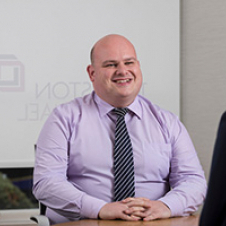Significant VAT changes for building and construction services on the horizon
27 January 2019
Significant changes are being introduced to the VAT treatment of supplies in the construction industry with effect from 1 October 2019. A domestic “reverse charge” rule is being introduced which will change the person responsible for accounting for VAT in relation to certain supplies of construction services. In particular, supplies between sub-contractors and main contractors will be impacted by the changes.
The Government has recently published a final version of the draft legislation which will introduce the changes.
What are the VAT changes?
Currently, a sub-contractor is responsible for charging and accounting for VAT to HMRC on supplies to main contractors. From 1 October 2019, the main contractor will be responsible for declaring the VAT on supplies received from the sub-contractor under the “reverse charge” rules. An equivalent VAT deduction can also be claimed by the main contractor subject to the normal rules of VAT recovery.
Who is affected by these changes?
Broadly speaking, the new rules will only affect supplies at the standard or reduced rate of VAT where payments are required to be reported through the Construction Industry Scheme. The categories of construction services affected by the VAT changes will include: general construction, groundwork construction, renovations and maintenance services, HVAC, cleaning services and painting and decorating of buildings and structures.
Note that the new rules will only apply on supplies between VAT registered businesses in circumstances where the recipient makes an onward supply of construction services. This means the VAT treatment of supplies to the final customer (e.g. property owner) will not change. There are a number of other exclusions including:
- Zero-rated supplies (e.g. the construction of new dwellings)
- Certain supplies between connected companies
- Certain supplies between landlord and tenant
- Services provided by architects, surveyors and other consultants
- The manufacture of certain building or engineering equipment and components
- The installation of security systems, burglar alarms, CCTV and PA systems
The VAT treatment of services provided to the final customer should not be affected by the changes.
Why are HMRC introducing changes?
HMRC are concerned about the current levels of “missing trader fraud”. This involves a supplier issuing a VAT invoice and collecting VAT from their customer before going “missing” and not declaring the VAT to HMRC. Requiring the customer to account for the VAT removes this risk.
What should businesses in the construction industry do to prepare for the changes?
All businesses involved in the construction industry should review their supply chains to consider how they will be impacted by the changes. It will be important to identify the categories of supplies which may be subject to the new “reverse charge” rules and update accounting systems accordingly.
Note that supplies in the construction industry can potentially be subject to VAT at 0%, 5% or 20%. Businesses which receives services from another contractor will need to determine which VAT rate applies and whether or not the services received will be subject to “reverse charge”.
The impact on invoicing, contracts, cash-flow and working capital of the proposed changes should also be considered.
How we can help
VAT is already complicated, and these changes serve to add to the complexity. The VAT specialists at Johnston Carmichael are on hand to help you prepare your business for these changes. Get in touch with a member of our team to find out more about how we can help.


